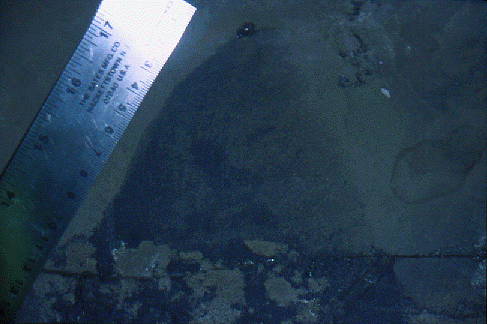- Shark history is known mainly from the preservation ability of their hard resilient calcium phosphate teeth.
- It is unusual to find shark skeletons or impressions in the fossil record since this would require a low energy, anoxic environment with an extremely rapid burial rate; otherwise the cartilaginous skeleton would decompose and the individual apatite (calcium phosphate) minerals which overlay the cartilaginous skeleton would be transported to another location.
- Since some sharks lose teeth at a rate of one every four hours, the number of recovered fossilized teeth is extremely high.
- Shark teeth are the most common vertebrate fossil.



